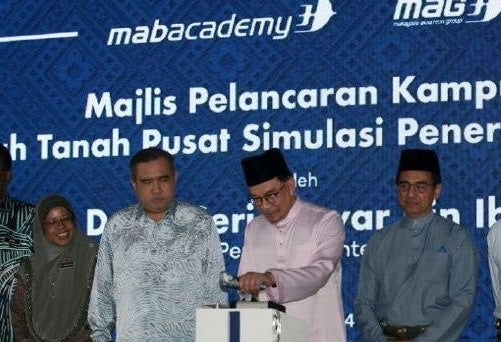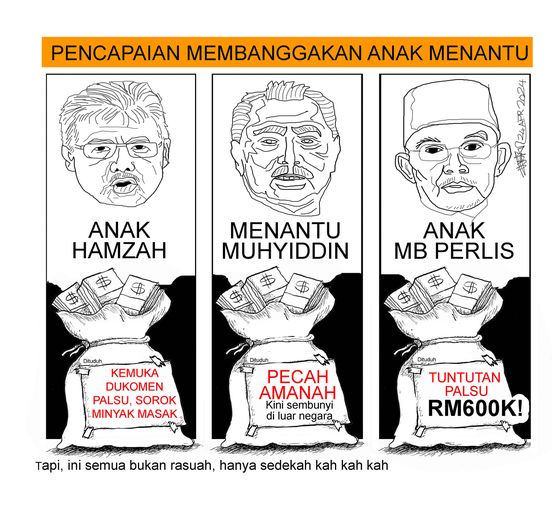
By Doreenn Leong
NOBODY likes uncertainties especially when it concerns government policies. It appears little have changed under the Pakatan Harapan-led government.
Take our education system for example.
The former minister Maszlee Malik attracted and courted controversy when he wanted to make students wear black shoes instead of white and proposed to remove a pre-university quota system for Malays if the private sector employs more Malays.
These are just a few of the many initiatives by Maszlee which caused much confusion and anger among the public.
Now that Prime Minister Tun Dr Mahathir Mohamad has taken over the portfolio as acting Education Minister effective Jan 3, all eyes are on what will be his first few moves.
This portfolio is not new to him as he was Education Minister from 1974 to 1978 during the administration of prime ministers Tun Abdul Razak Hussein and Tun Hussein Onn respectively.
It will not be surprising if he decides to revive some of the policies implemented when he was in power.
One of the things that he said recently was the proposal to bring back English in the teaching of Science and Mathematics as he believes the move would allow for a better mastery of the language.
The Teaching and Learning of Science and Mathematics in English (PPSMI) policy was introduced in 2003 but replaced with the Upholding the Malay Language and Strengthening Command of English Language (MBMMBI) policy which was implemented in phases since 2010.
The possible revival of the PPSMI was strongly objected to by Dong Jiao Zong, which is made up of two Chinese-language education groups.
The group claimed that the government had previously spent heavily on education tools when implementing PPSMI, but said students’ mastery of English, mathematics and science did not improve commensurately. Also, the ‘unsuitable tools’ had also resulted in wastage.
Dong Jiao Zong also said that students should not be hampered in their education due to their language competency limits.
The group has its valid arguments against implementing PPSMI but whether Dr Mahathir will take into consideration these concerns remain to be seen.
More importantly, were other stakeholders consulted on the matter? Was this discussed in the Cabinet? Why push through something that might not have benefit the majority?
Surely, mastering English is crucial if we want to compete globally but there are many ways to do so.
Another policy that has taken a back seat is the implementation of the targeted fuel subsidy programme (PSP).
According to the Domestic Trade and Consumer Affairs Minister Datuk Seri Saifuddin Nasution Ismail, the decision to delay the PSP from being implemented nationwide starting January was made during a Cabinet meeting on Dec 18, 2019.
Saifuddin said the postponement was to allow for more sessions to be conducted to explain the subsidy and to better prepare Malaysians to accept the PSP. Why did the government push through this programme in a haste then?
Under the PSP, individuals who own not more than two cars and two motorcycles are eligible to receive PSP for one vehicle.
The qualifying criteria is for passenger cars with 1,600cc engine and below, or 1,600cc and above if they are more than 10 years old.
For motorcycles, it must be 150cc and below; if it is over 150cc, it must be at least seven years old. No luxury vehicles are qualified to receive the targeted subsidies.
Let’s look at the property sector. When tabling Budget 2020 in Parliament on Oct 11, 2019 Finance Minister Lim Guan Eng said that to address the glut of condominiums and apartments worth some RM8.3 bil, the government would lower the minimum price for foreign ownership of high-rise residential buildings in urban areas from RM1mil to RM600,000 in 2020.
But it appears the Housing and Local Government Ministry was in the dark, saying it would hold discussions with the Finance Ministry on the move.
Its Minister Zuraida Kamarudin said there was a need to re-examine the policy, as many Malaysians disagreed with it.
According to Zuraida, many were still unclear about the policy, and perceived that it had been proposed by her ministry, while it was actually under the jurisdiction of the Finance Ministry.
It is apparent that there is no clear communication between the ministries and many of the policies are implemented without proper consultation. This has to change in order to convince people that the government has their best interest at heart. – Feb 6, 2020










